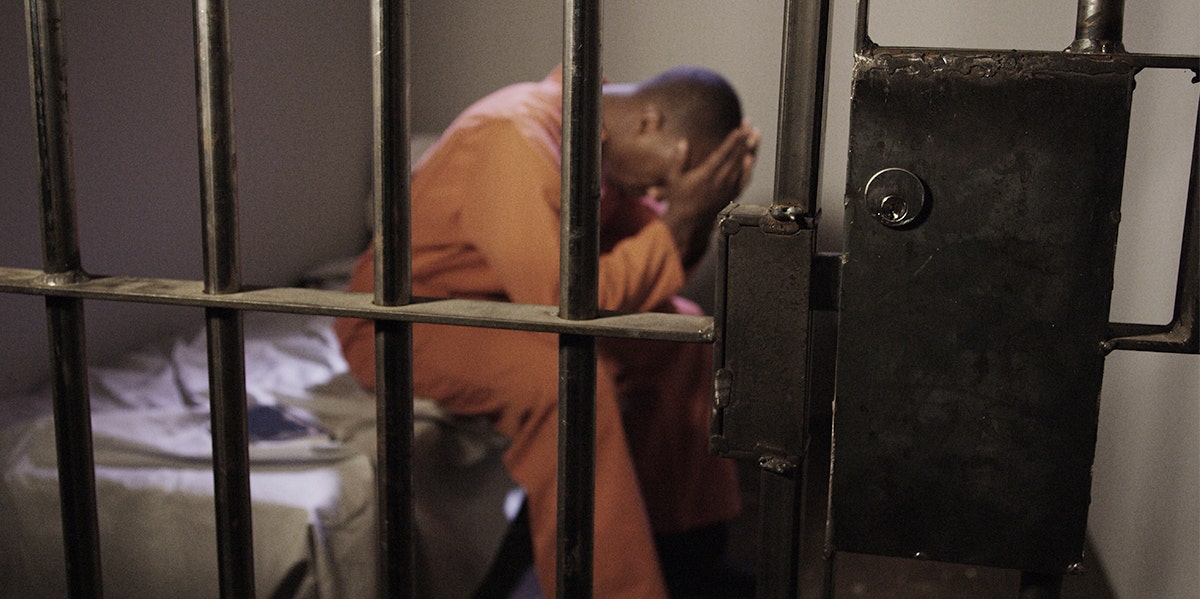Biden's Order To Terminate Private Prisons Isn't As Beneficial To BIPOC As Everyone Would Like To Believe
Both private and public prisons need to go.
 Skyward Kick Productions / Shutterstock
Skyward Kick Productions / Shutterstock President Biden has been working since his inauguration on many promises he’s made during his campaign trail — especially to the Black community.
As good as removing Andrew Jackson as the face of the $20 bill in place of Harriet Tubman and ending contracts with private prison may seem, they aren’t the kinds of progressive change that Black people are calling for in how the administration handles racial inequality.
Putting an end to private prisons is an amazing start, but it shouldn’t be the end goal.
First we need to put things into context: Private prisons are confinements run by private individuals through a contractual agreement with the government. There are around 8% of people that are incarcerated by the federal government that are located in private prisons.
Private prisons are complicated. But the majority of people incarcerated in federal private prisons are in immigration detention facilities.
Biden’s executive order on contracting with private prisons applies only to the Department of Justice and not the Department of Homeland Security. Which means that order does nothing to help the BIPOC immigrants currently in those detention facilities.
Private prisons are only representing a small portion of the entire incarceration and prison industrial complex issue. Which means this isn’t truly helping the scary amount of Black and Brown people that are currently sitting in prison cells across the country.
Black people have consistently outnumbered white people in the United States prison system. States imprison Black people at five times the rate of whites. though that number has been narrowing over the past two years, it’s still a problem.
Out of the large numbers of Black people incarcerated, most of them are found in public prisons, with 92%.
The privatization of prisons is much bigger and extends further than people even realize.
Since the civil unrest after George Floyd’s murder, many people began chanting to defund the police, a controversial slong, but one in which I agree with. But, it’s not just about defunding the police anymore. Because as soon as someone is arrested, they go through the process with the justice system — a system that is also corrupt.
We talk about defunding the police, but we also need to talk about abolishing prisons. And Biden’s plan with private prisons isn’t enough. We need to not only get rid of private but also public prisons.
Ava DuVernay made an incredible documentary in 2016 called 13th, where she focused on the 13th amendment, which called for the end of slavery. But prisons are a modern-day version of slavery, which is talked about in the documentary.
So it’s hard for me to back Biden’s plan, even if it is a miniscule step in the right direction because of the knowledge of what exactly the prison system stands for in the Black community.
I grew up where talking about parole, and going to see parole officers was such a normal topic of conversation and seeing Black people going in and out of prison and getting arrested was the status quo. The justice system has never been a favorable system in Black households because we view it as the end of a life.
There is no rehabilitation happening in prisons. There is no regard for helping and giving Black people better lives. As soon as you are sentenced in a court, your life is over. Even after you’ve been released, even after you’ve served your time. Black people are still regarded as criminals.
If Biden is truly trying to help the Black community and wants to put an end to the horrid reality behind the prison industrial complex, then he’ll listen to activists and prison abolitionists when they say there is no better future unless the prison system is knocked down and rebuilt in a better light.
Nia Tipton is a writer living in Chicago. She covers pop culture, social justice issues, and trending topics. Follow her on Instagram.

